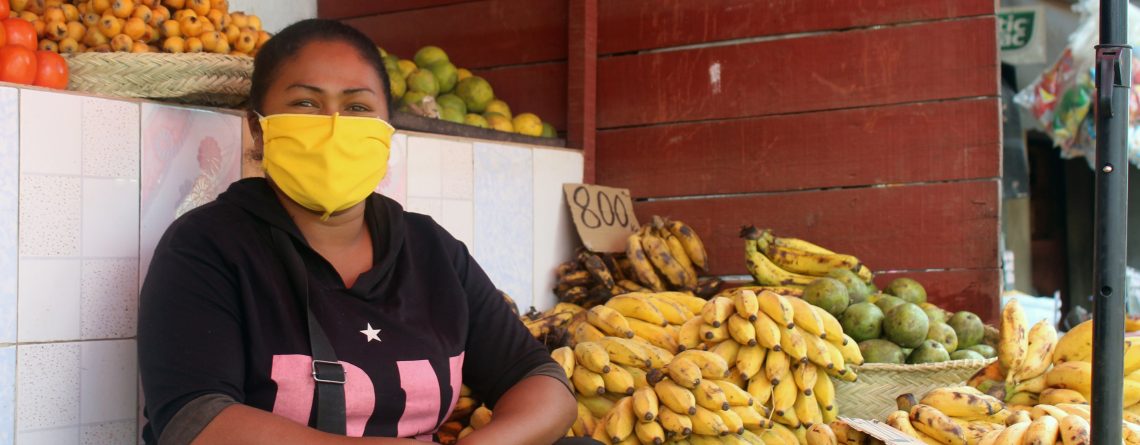The Informal Economy and its Relation to Global poverty
The informal economy, also known as the informal sector, is the diversified set of economic activities, enterprises, jobs and workers that are not regulated or protected by the state. The definition of the informal economy has also recently expanded to include wage employment in unprotected jobs, such as daily wage jobs. However, generalizations of the informal economy often include terms such as “illegal” or “black market.” On the contrary, the vast majority of informal workers simply attempt to earn an honest living against great odds. In fact, many daily wage workers work in public spaces and contribute greatly to communities and economies.
How Did the Informal Economy Emerge?
British anthropologist Keith Hart first coined the term “informal sector” in 1971 while studying economic activity among rural migrants in Ghana. Although the emergence of the informal sector relies heavily on country specifics, there are underlying similarities among the countries that partake in informal employment. These include low literacy and numeracy rates, inadequate skill development, lack of technical and vocational training and limited investments in infrastructure.
Informal workers are more commonly found in developing countries than in developed countries. They perform economic activities without work-based social protection, including street vending, home-based work and short-term contract work.
How Large Is the Informal Economy?
The presence of the informal economy may be larger than one might think. In fact, 61% of the world’s labor force is employed in the informal economy, representing about two billion workers in total.
The informal economy also significantly contributes to the economy in various countries. In sub-Saharan Africa, the size of the informal sector is estimated to be about 38% of the official GDP, employing over 70% of the population. In Latin America, about 50% of jobs are considered to be informal, while in South Asia the figure is estimated to be close to 80%.
The informal sector provides more employment for men than for women at the global level, with 63% of men and 58% of women involved. However, this figure changes in developed countries, where 19% of men and 18% of women participate, and developing countries, where 69% of men and 64% of women are involved.
Female workers are at special risk in the informal economy given that social protection is least accessible to them. Women dominate informal work in countries like India, which employs about 90% of the country’s workforce and 97% of its women workers.
How Does the Informal Economy Affect the Work Process?
As an entity without institutional regulation, the informal economy does not guarantee social benefits, minimum wage or other examples of legal restrictions on employment. It also ignores many health requirements put in place by the state, which poses health concerns for the workers. Furthermore, informal economy workers have to work regardless in order to maintain a basic income. Already working in very high-risk environments, many migrant informal workers face risks related to their undocumented migrant status.
Put simply, informal workers naturally lack the protections granted by the state as a formal worker. As a result, informal workers tend to face harsher work conditions due to this lack of regulatory standards.
What About Economic Crises?
The informal economy faces great risks during economic crises for a multitude of reasons. First, larger shares of informal economic activity take place in developing countries, which already handle adverse economic conditions. Second, there are rarely social insurance mechanisms like old-age pensions or maternity benefits for informal workers. Outside the formal sector of employees, informal workers do not receive any worker protection packages, leaving them even more vulnerable in tumultuous times.
In times of public health crises like the current COVID-19 pandemic, informal workers are at even greater risk than most. Without regulations, social protection and health protections, informal workers cannot properly implement social distancing. Another concern is border closures and limits on human movement. As many informal workers travel long distances to work, specifically in agriculture, confinement measures may put food security at risk.
How Does It Relate to Poverty?
Although not every person working in the informal economy is poor, there is a significant overlap between the two. In a study of the U.K.’s informal sector, Colin Williams of the University of Sheffield finds that the pay rates of informal workers “are lower than for other population groups, meaning that the informal economy reinforces their marginalized position.” He elaborates that the informal economy provides a source of income for those who would otherwise live in poverty. However, those same employees face “higher barriers of entry to the formal market on account of an inability to provide employment history to back up their skills.”
Historically, governments and other institutions discouraged informal work in favor of formal employment and consequently sought to eradicate it. However, there are policy options to better support those living in poverty and working in the informal economy. Williams offers a handful of solutions, including eradicating the informal economy, de-regulating the formal economy and moving informal work into the formal economy. More specifically, he suggests a combination of these approaches, as they are not mutually exclusive.
Read More @Borgen Magazine











